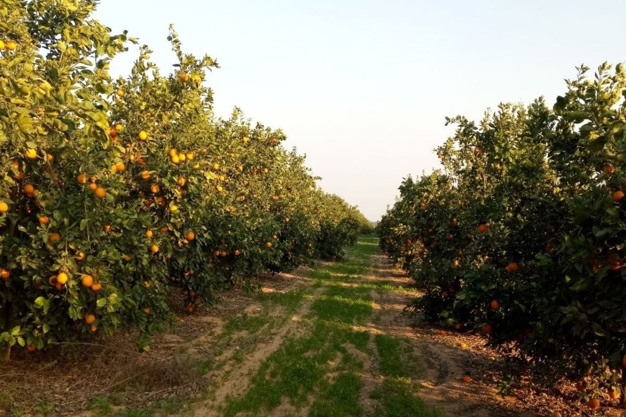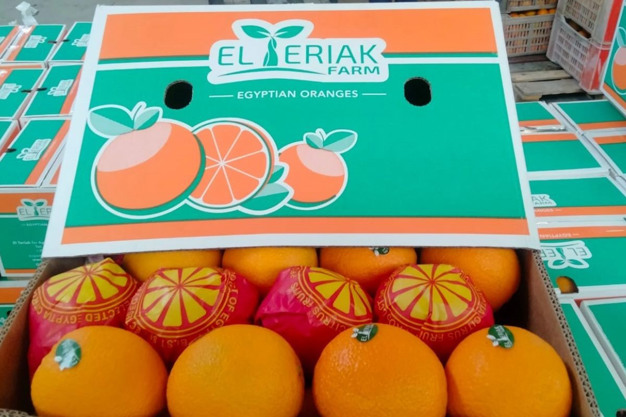The Egyptian government has decided to cut subsidies in support of exportation, including agricultural exports, as of November 1, 2024. In the agricultural sector, subsidies have been lowered from 8-10% to 2.4-3% of invoiced amounts. Among the hardest hit agricultural exporters are those exporting citrus fruits, given the scale of volumes, which amounted to 2.3 million tonnes last season, valued at $1.1 billion.
Even so, Amgad Nessem, Export Manager of El Teriak Farms, welcomes the measure with relief. He says: "Of course, it will be difficult to adapt to this measure at first, but it's a healthy decision that will bring a great deal of stability to the citrus export sector and solve many of the problems or harmful side-effects caused by these specific subsidies."

The exporter explains: "The first thing to bear in mind is that, in a context of insufficient reserves of hard currencies, particularly the US dollar, banks have in recent years been requiring Egyptian importers to obtain the dollars they need to do business. Similarly, regulations require importers to have an export activity in order to contain the erosion of hard currency reserves. Many importers turned to exporting agricultural products, especially citrus, because of the large volumes involved and the fact that citrus exports remained stable even during global crises such as the coronavirus."
"You can imagine the impact of the intrusion of parasitic players on the industry," Amgad adds. Many of them have no regard for the quality of the oranges or the packaging, and not even for the price. They could export with no profit margin, relying solely on export subsidies to earn the dollars they needed to import. In addition to the 8% subsidy, they avoid paying 5% in bank commissions on obtaining dollars, bringing their gain to 13% even with zero profit on the citrus trade. They can even afford claims of up to 10% of their deliveries! Exporting fresh produce and oranges was first and foremost a financial activity for them."
Following the significant reduction in export subsidies, this scheme has now become too risky and unnecessary for these "parasitic players", as Amgad describes. "These intruders on the agricultural export industry will either leave this season or adopt good practices, and that's good news because they were harmful to the industry. Even better, obtaining the subsidy is now conditional on giving up 50% of foreign currency earnings, in exchange for the Egyptian pound, to the banks. This will bring a lot of stability to the sector by making it unattractive to opportunity traders, not to mention the benefits for the economy as a whole."

According to Amgad, the immediate effects of the reduction in export subsidies, in the case of citrus fruit, are a reduction in export volumes, an increase in prices, and a narrowing of the price gap between exporters. He explains:
"There will be fewer export volumes, at least at the start of the season, to markets that used to buy Egyptian oranges at low prices. I'm thinking in particular of Saudi Arabia and, by extension, the Gulf markets. We can see this right now: usually, even before the start of the campaign, many ferries heading for Jeddah used to mobilize in Egyptian ports, waiting to be loaded with Egyptian Navel oranges. This season we haven't seen much of them. This is an opportunity to valorize Egyptian oranges in these markets, in the same way as the competition in Morocco or South Africa valorizes its oranges."
The exporter continues, "The pricing of oranges will be more correct and transparent, and not artificially influenced by subsidies. There will be no more bidding down of prices, nor discrepancies between exporters. Last season, price differences for Navel oranges of the same quality were as high as $50 per ton, despite the fact that waxing and packaging costs are more or less the same throughout Egypt. From this season onwards, therefore, price differentials will be minimal, and competition will be on the quality front."
The reduction in subsidies will contribute this season, combined with other factors, to the increase in Egyptian orange prices. According to Amgad, the revised Global Gap requirement is equally an important factor. He says, "Now, if you want to export oranges to Europe you have to grow your produce, on land you own, and with audits at harvest time. This reduces the number of competitors on the European market. These new measures, together with lower subsidies and inflation, have raised the farm-gate price of oranges from EGP 8-9 per kilo at the start of last season to EGP 16 at the start of this season."

Finally, the reduction in subsidies will help improve the quality of orange exports, argues Amgad."Even in markets where Global Gap is not required, such as Eastern Europe, the withdrawal of opportunistic traders will certainly improve quality and restore the reputation of the Egyptian origin.These markets are fed up with receiving bad oranges, or bad packaging or pallets, and will tighten quality control. I can assure that these same markets will see claims drop significantly as of this season."
Amgad concludes: "All in all, we'll have to adapt, and we'll undoubtedly see export volumes decrease, but that's the price we have to pay for a stronger, more stable sector. The problems I've mentioned won't all vanish, but it's the way to go for the sake of the Egyptian economy and the interest of genuine and serious players whether in Egypt or in the destination countries of Egyptian fresh produce."
For more information:
Amgad Nessem
Elteriak Farms
Tel: +201 207 976 920
Email: [email protected]
www.elteriakfarms.com
